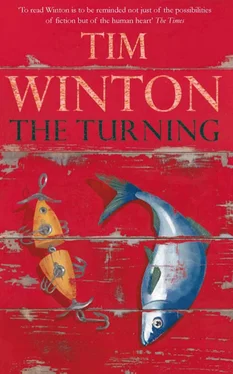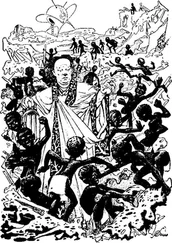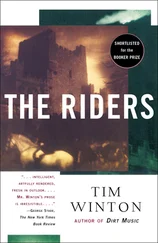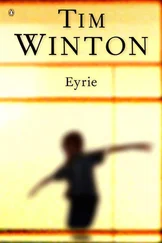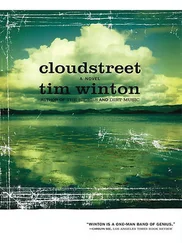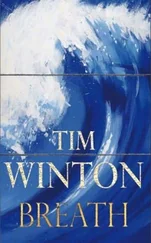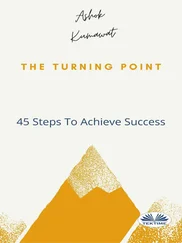Max, I didn’t know how to do it.
Aw, shut up, said his brother.
It was an accident.
Orright, it was an accident. Let’s dig.
Dig what? said Frank carefully. He was surprised at how fast Max was forgiving him and a little uneasy at how suddenly the moon had appeared.
A hole, dickhead. A tunnel. Like in the movies. An escape tunnel. We can come back to it, hide stuff.
Okay, said Frank, picturing it.
Over here, said Max. This bit’s kind of wet and hard.
In the strange light of the moon they dug into the side of the bare white hill, just bored right in like dogs. They didn’t speak. Frank was spurred on by the intensity of Max’s work. He dragged away what Max scooped back between his legs and after a while all you could see was Max’s feet sticking out of the side of the dune.
Funny, said Max, wriggling his way back out. It’s quiet in there. You can’t hear anythin.
Can I try?
Nah, you’re too small.
Aw, Max! Please?
I dunno. Orright. Just a quick go. We gotta go deeper.
Frank wasted no time in case Max changed his mind. He wormed his way into the dark hole and was interested at how warm it was inside. There was an odd mineral smell but no sound, only his breathing. He lay there with his hand outstretched to touch the curved wall. Then he heard a hiss behind him. A bit of dry sand spilled against his feet from outside. There was a squeak and then more squeaks. It was Max walking around out there. He was climbing up the dune. No, he was stomping on it. Frank felt a thud overhead.
Max?
Frank got up on his elbows. There was another thud. A warm clod hit him in the back of the neck. Something fell in the dark ahead and a gust of air rose against his face. He scrambled backwards and was halfway out when it all came down on his head with a whoof and pinned him flat like the weight of a whole team piling in, going stacks-on-the-mill. All his breath rushed out and sand pressed warm into his eyes and ears and rammed against his tight-shut lips. Then his legs began to twitch; they flailed as though they didn’t even belong to him. They writhed and churned in loose sand. His feet were free. His knees dug in so that his whole body could twist. Then he got an arm free and pushed up hard. The great heavy crust parted around his neck and he was out, on his feet, running blind and gulping in sobs of air and choking grit until he fell coughing, crying, alone on the sand.
Frank bawled until his eyes washed clear enough to see the blurry moon. He saw the dunes all around him holding up the edges of the sky. Everything was white and woolly. Even his feet and arms were ghostly. He got up and ran. His feet chuffed in powdery sand. He was the only sound in the world.
He reached a crest and saw the dark plane of the sea flecked with moonlight. His chest hurt. It felt like he’d swallowed the earth but he didn’t stop running.
When he saw the lantern he spilled down onto the beach, holding everything in. The men stood in the light with their rods and in their midst Max stood with a mulloway across his back, silver as a prince’s cape, glistening from arm to arm, still wet and trembling. Their father turned with the gaff in his hand. The smile left his face. Frank wide-legged it towards them, apologizing all the way.
When an archer is shooting for nothing
He has all his skill
If he shoots for a brass buckle
He is already nervous
If he shoots for a prize of gold
He goes blind
Or sees two targets—
He is out of his mind!
His skill has not changed. But the prize
Divides him. He cares.
He thinks more of winning
Than of shooting—
And the need to win
Drains him of power.
Chuang Tzu
AFTER THE SHIT FINALLY DIED DOWN Leaper chucked his board and wetsuit into the old HK and buggered off to White Point. It was four in the morning and he was still half pissed but there was no one out in the street, not even the dogged sportswriter who’d been camped outside in his Sigma since Sunday, so he went while he had the chance. He took it easy through the sleeping burbs and then as pony farms and market gardens gave way to the blankness of bush he began to relax a little. But the feeling only lasted a few minutes as fatigue overtook him and roos started appearing at the edge of the road so frequently and abruptly that he pulled over into a pine plantation, climbed into the back and slept in the jumble of stuff he’d tossed there in his haste.
He woke, shivering, barely two hours later. It was full daylight and a winter mist hung in the trees. He climbed into the front. The image in the rear-view mirror startled him.
Jesus, he muttered. I thought you were dead.
The face scowling back at him was so closed, so drawn and bitter, that it might easily have been the old man’s. Leaper felt flattened. He thought about driving back to the city but there was no food left in the house and the place was a stinking mire of bottles and pizza boxes. Back there the phone line was out of the wall and beneath a midden of dirty dishes and malarial sinkwater the mobile would be cactus by now. He couldn’t bear to be there again. He’d left the TV on its back, wide-eyed and out of commission, like a kinghit wingman. Wherever you walked in the house there was a sinister crackle of newspaper underfoot, his season like a carpet, photos of him flying above the pack with the wind in his cheeks and his fingers splayed for the ball. Others of him with his hands on his hips, his head down, the coach in his face, all fingerpointing and gob spray, with the howling crowd at their backs, and in every room, though stained and wrinkled or even plain screwed up, there was that picture they printed and reprinted for days, with the back page headlines, the one of him walking, solitary, up the players’ race with the game still in progress over his shoulder and the look of complete blankness on his face.
No, he wasn’t going back to that. But this morning White Point didn’t seem such a great idea either. What had he been thinking of? Family? Jesus, there was only Max, his brother, and a sister-in-law he’d never met, nieces he’d only heard about.
Leaper sat there a minute. He knew a surf would do him good. And right now, more or less sober for the first time in days, he couldn’t think of anywhere else to go.
Two hours later he crested the ridge and looked down on the great train of dunes and the winter sea and the hamlet in the narrow margin between them. He was stiff and hungry but as he coasted through the main drag, low in his seat, he resisted the urge to pull in to the bakery or the servo for breakfast. Fibro houses and shopfronts rolled by. He stole a glance at the old baitshop that still bore his father’s name and drove on down to the beach where the sand was white and hard-packed and the lagoon bristled with crayboats nodding and twisting at their moorings.
At the outer reefs that formed the anchorage, lines of whitewater spilled landward with the rumbling, far-off noise of heavy traffic. Leaper drove around the beach to the wide spit of the point itself. A spray of terns rose in his path. He wound down the window to breathe in the salt smell. Even in the weak June light the glare off the sand was enough to make him wince.
There was nobody else parked on the point but out on the reef he could see the white flare of a board wake on a distant wave. When he pulled up he clawed the binoculars from the glovebox to watch the surfer carve lines across the smooth face until the swell hit the deep water of the channel where wave and rider subsided into the sea.
Leaper got out and stretched against the old station wagon. He was sore and lightheaded. The land breeze was cool at his back, and when he turned to put his face into it he saw the water tower from the caravan park rising bigheaded from behind the scrubby dune. It gave him a strange pang to see it again. He’d grown up in the shadows of its trestle legs. As boys, in that van park in the lee of the sandhills, the tower loomed over Max and him; its faded red tank was a bloodshot eye that never closed. From anywhere in town or from miles out at sea it was clearly visible, the home beacon. From what he could gather, Max still lived over there with his missus and kids on the same site and maybe even the same van the old man dragged up in the sixties. Perhaps he’d go over and visit. Maybe they’d put him up for a bit until he got himself sorted out. Before he got that far he needed to feel his muscles burn. He didn’t want to run. He wanted the privacy of the sea.
Читать дальше
